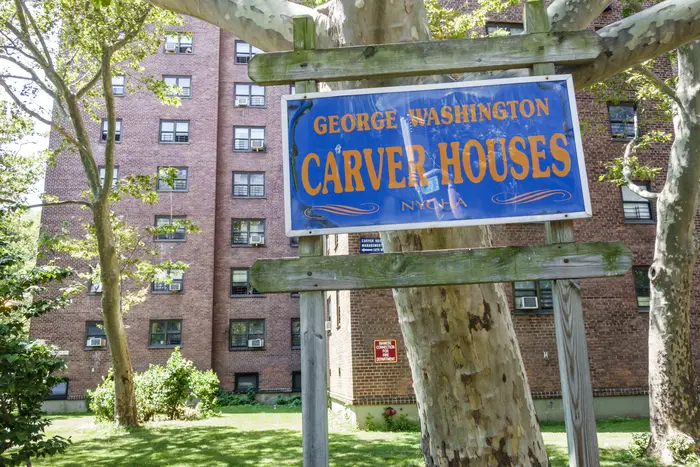Lifestyle
NYCHA Prioritizes Domestic Violence Survivors for Housing Access

The New York City Housing Authority (NYCHA) has announced a significant policy change aimed at prioritizing tenants fleeing domestic violence for available housing. This update comes after years of criticism regarding the lengthy waiting times faced by those seeking to escape abusive situations. According to reports, individuals in this category were previously waiting an average of 800 days for relocation, despite having approved applications.
In a report released by Legal Services NYC last year, it was revealed that approximately 2,000 households seeking moves due to domestic violence were on the waiting list as of fall 2024. Under the old system, transfers related to domestic violence were placed near the back of the line, behind other reasons for transfer, such as long commutes or neighbor disputes. The newly approved plan reorders these priorities, classifying domestic violence moves as “emergency transfers.” This designation aligns them with urgent needs such as those required by disabled tenants.
A spokesperson for NYCHA confirmed that the new policy, finalized last month, will be implemented by the end of March 2024. This change is seen as a positive step by advocates, including Luis Henriquez, the director of litigation at Manhattan Legal Services. He emphasized that while the update is beneficial, it still does not fully comply with federal laws mandating equal priority for those escaping domestic violence compared to other urgent housing needs.
Under the revised guidelines, emergency transfers must still wait behind tenants returning to their original apartments or developments, as well as those relocating due to renovations. Henriquez stated, “Emergency transfers need to have that exact same level of priority as those needing to move because their apartment caught fire.”
Advocates have also urged NYCHA to consider additional measures, such as hiring a dedicated coordinator to assist survivors and simplifying the process for obtaining Section 8 vouchers. To date, there has been no indication that the authority has acted on these recommendations.
Another pressing issue is NYCHA’s vacancy rate, which according to the most recent Mayor’s Management Report, stood at 6,451 vacant units last fiscal year, an increase of nearly 900 from the previous year. This figure does not account for an additional 1,800 units that are currently undergoing conversion from public housing to Section 8-style programs for repairs. Advocates like Henriquez are calling for better utilization of this vacant housing stock to assist those in need.
As NYCHA implements these changes, the focus remains on how effectively the authority can address the pressing needs of domestic violence survivors while maximizing its available resources.
-

 Science4 weeks ago
Science4 weeks agoInterstellar Object 3I/ATLAS Emits Unique Metal Alloy, Says Scientist
-

 Science1 month ago
Science1 month agoResearchers Achieve Fastest Genome Sequencing in Under Four Hours
-

 Politics1 month ago
Politics1 month agoAfghan Refugee Detained by ICE After Asylum Hearing in New York
-

 Business1 month ago
Business1 month agoIconic Sand Dollar Social Club Listed for $3 Million in Folly Beach
-

 Health1 month ago
Health1 month agoPeptilogics Secures $78 Million to Combat Prosthetic Joint Infections
-

 Business1 month ago
Business1 month agoMcEwen Inc. Secures Tartan Lake Gold Mine Through Acquisition
-

 Lifestyle1 month ago
Lifestyle1 month agoJump for Good: San Clemente Pier Fundraiser Allows Legal Leaps
-

 Science1 month ago
Science1 month agoMars Observed: Detailed Imaging Reveals Dust Avalanche Dynamics
-

 Health1 month ago
Health1 month agoResearcher Uncovers Zika Virus Pathway to Placenta Using Nanotubes
-

 World1 month ago
World1 month agoUS Passport Ranks Drop Out of Top 10 for First Time Ever
-

 Entertainment1 month ago
Entertainment1 month agoJennifer Lopez Addresses A-Rod Split in Candid Interview
-

 Business1 month ago
Business1 month agoSan Jose High-Rise Faces Foreclosure Over $182.5 Million Loan








